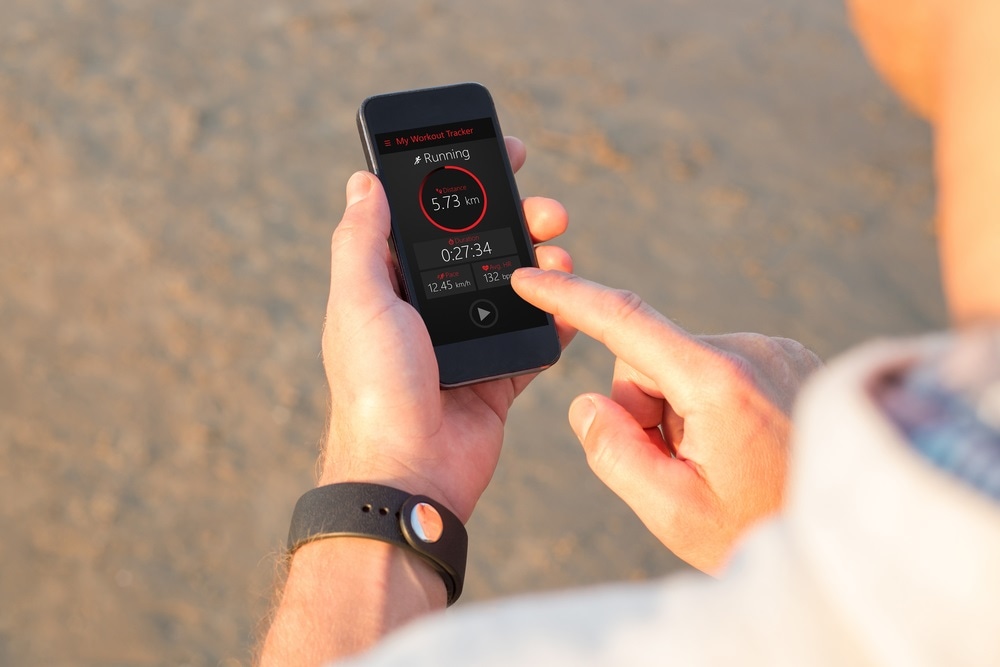New data has revealed that those who take more tracked steps each day have a lower blood pressure than those who take fewer. The evidence supports the idea that measuring physical activity can be an important tool in enhancing health, in this case, allowing people to monitor their daily step count to help them achieve recommended activity levels.
 Image Credits: Kaspars Grinvalds / Shutterstock.com
Image Credits: Kaspars Grinvalds / Shutterstock.com
Developing methods to tackle preventative heart disease
The Framingham Heart Study has been going on for over 70 years with the aim of elucidating the factors that contribute to heart disease. As part of this project, the current study aimed to investigate the link between daily step count and blood pressure.
Previous studies have already highlighted the link between increased daily step counts and reduced incidence of detrimental health conditions such as diabetes and high blood pressure. However, some recent studies have been unable to support the benefit of walking health experts’ recommended 10,000 daily steps, concluding that their data provides no evidence that it is related to lowered blood pressure.
Obtaining a firm conclusion regarding the effect of walking on blood pressure is fundamental to establishing new and more effective preventative methods for heart disease, a major health complication related to increased blood pressure.
According to the Centers for Disease Control and Prevention (CDC), heart disease accounts for the deaths of 647,000 Americans each year, equating to a quarter of all deaths. In addition, the disease is a major burden to the healthcare system, costing around $219 billion each year.
Given that an estimated 80% of cardiovascular disease, including heart disease, is preventable, establishing new preventative approaches that are effective is key in reducing thousands of unnecessary deaths.
Using wearables to track habitual activity
The current study has collected data that indicates that setting daily step count targets and monitoring them with wearables may be an effective approach to reducing the risk of heart disease by lowering blood pressure.
The project asked 638 participants to wear an Apple Watch daily and take weekly measurements of their blood pressure for an extended time period. It is one of the first studies to use commercially available wearables to monitor habitual physical activity in daily life.
Increased step count linked with decreased blood pressure
An analysis of the data revealed that for every 1,000 daily steps taken, a participant’s systolic blood pressure reduced by an average of 0.45 points. Therefore, in walking 10,000 steps daily a person’s systolic blood pressure would be 2.25 points lower than if they walked just 5,000 steps.
Normal blood pressure is considered to be less than 120 mm Hg, with readings of 120mm Hg or higher being considered elevated. The average blood pressure of the group studied was 122 mm Hg, and therefore, in walking an extra 5,000 the group could theoretically lower its average blood pressure to a healthy level, demonstrating the power of using wearables to monitor activity levels.
While the data collected is observational, and therefore the correlation between step count and blood pressure cannot be concluded as causative, the findings support previous research that has indicated that increased rates of physical activity can reduce blood pressure. Scientists speculate that obesity could underly this relationship.
The next step will be to investigate how wearables could be used to promote and monitor physical activity, reducing the prevalence of heart disease, and hopefully lowering the number of unnecessary deaths caused by the disease as well as the financial burden it puts on healthcare systems.
Given that almost half of all Americans are thought to have high blood pressure, with a significant portion not being aware of it, the potential effect of the widespread use of wearables to encourage and raise activity levels could be huge.